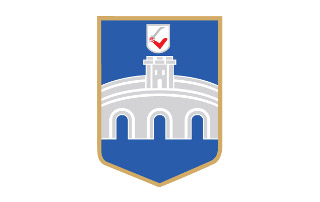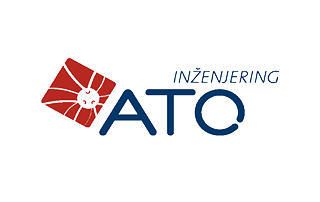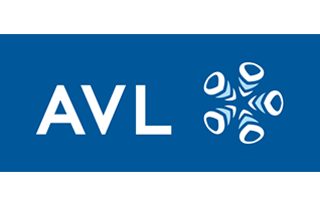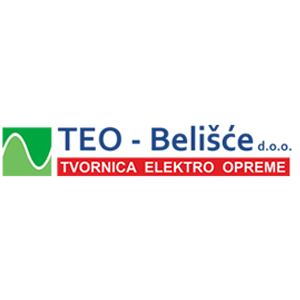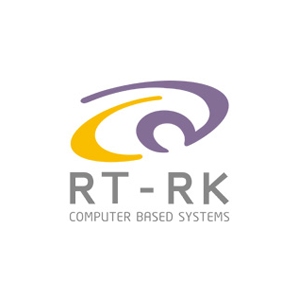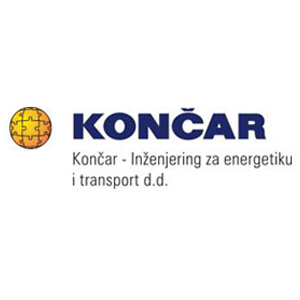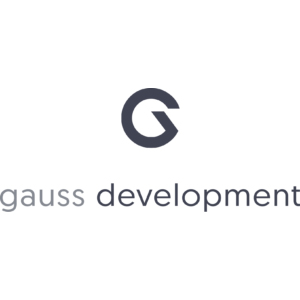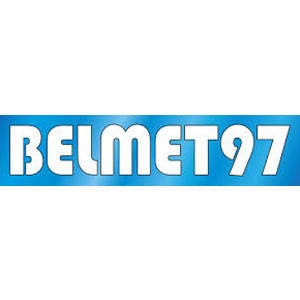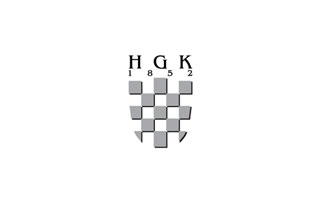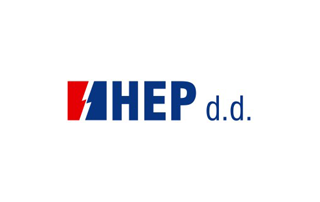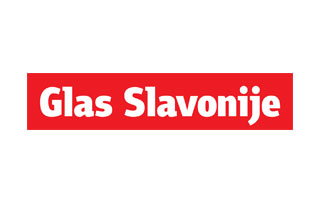
SST2018, October 10-12 2018, FERIT, Osijek
CONFERENCE CHAIRS
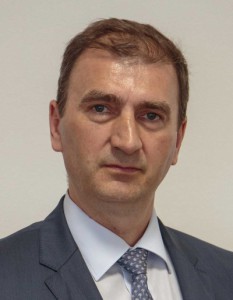
General Chair
Drago Žagar
Faculty of Electrical Engineering, Computer Science and Information Technology Osijek,
Josip Juraj Strossmayer University of Osijek,
Kneza Trpimira 2b, Osijek, Croatia
+385 31 224 602
e-mail:
drago.zagar@ferit.hr
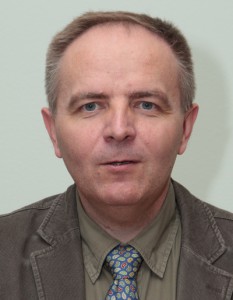
Program Co-Chair
Goran Martinović
Faculty of Electrical Engineering, Computer Science and Information Technology Osijek,
Josip Juraj Strossmayer University of Osijek,
Kneza Trpimira 2b, Osijek, Croatia
+385 31 495 401
e-mail:
goran.martinovic@ferit.hr
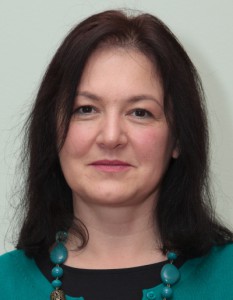
Program Co-Chair
Snježana Rimac Drlje
Faculty of Electrical Engineering, Computer Science and Information Technology Osijek,
Josip Juraj Strossmayer University of Osijek,
Kneza Trpimira 2b, Osijek, Croatia
+385 31 224 759
e-mail:
rimac@ferit.hr
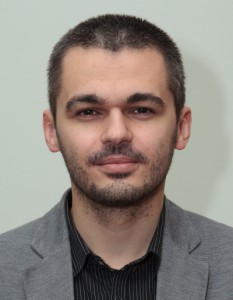
Registration Chair
Kruno Miličević
Faculty of Electrical Engineering, Computer Science and Information Technology Osijek,
Josip Juraj Strossmayer University of Osijek,
Kneza Trpimira 2b, Osijek, Croatia
+385 31 495 401
e-mail:
kruno.milicevic@ferit.hr
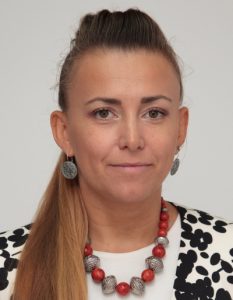
Publication Chair
Irena Galić
Faculty of Electrical Engineering, Computer Science and Information Technology Osijek,
Josip Juraj Strossmayer University of Osijek,
Kneza Trpimira 2b, Osijek, Croatia
+385 31 495 427
e-mail:
irena.galic@ferit.hr
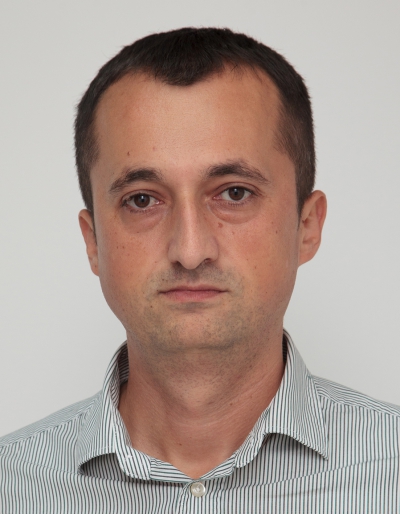
Publicity/Web Chair
Tomislav Matić
Faculty of Electrical Engineering, Computer Science and Information Technology Osijek,
Josip Juraj Strossmayer University of Osijek,
Kneza Trpimira 2b, Osijek, Croatia
+385 31 224 732
e-mail:
prodekan.nastava@etfos.hr
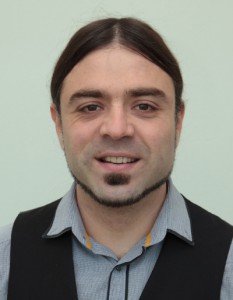
Publicity/Web Chair
Josip Balen
Faculty of Electrical Engineering, Computer Science and Information Technology Osijek,
Josip Juraj Strossmayer University of Osijek,
Kneza Trpimira 2b, Osijek, Croatia
+385 31 224 759
e-mail:
josip.balen@ferit.hr
STEERING COMMITTEE
Hans Bodén
KTH Royal Institute of Technology, Sweden
Leo Budin
Croatian Academy of Sciences and Arts, Croatia
University of Zagreb, Croatia
Matjaž Colnarič
University of Maribor, Slovenia
Ivica Crnković
Chalmers University, Gothenburg, Sweden
J.J. Strossmayer University of Osijek, Croatia
Bojan Čukić
University of North Carolina at Charlotte, USA
Sven Gotovac
University of Split, Croatia
Mislav Grgić
University of Zagreb, Croatia
Francesco Grimaccia
Politecnico di Milano, Italy
Norbert Herencsar
Brno University of Technology, Czech Republic
Željko Hocenski
J.J. Strossmayer University of Osijek, Croatia
Ignac Lovrek
Croatian Academy of Sciences and Arts, Croatia
University of Zagreb, Croatia
Ngoc Thanh Nguyen
Wroclaw University of Technology, Poland
Srete Nikolovski
J.J. Strossmayer University of Osijek, Croatia
Milos Oravec
Slovak University of Technology, Bratislava, Slovakia
Igor Papič
University of Ljubljana, Slovenia
Davor Pavuna
École Polytechnique Fédérale de Lausanne (EPFL), Switzerland
Nedjeljko Perić
University of Zagreb, Croatia
Jože Pihler
University of Maribor, Slovenia
Ivan Samardžić
J.J. Strossmayer University of Osijek, Croatia
Josip Stjepandić
PROSTEP AG, Germany
Andrea M. Tonello
Alpen-Adria-Universität Klagenfurt, Austria
Mladen Vouk
North Carolina State University, USA
Borut Žalik
University of Maribor, Slovenia
PROGRAM COMMITTEE
Hamid Reza Baghaee
Amirkabir University of Technology, Iran
Adrijan Barić
University of Zagreb, Croatia
Milan Bjelica
RT-RK Institute for Computer Based Systems, Serbia
Marija Boban
University of Split, Croatia
Hans Bodén
KTH Royal Institute of Technology, Sweden
Janez Brest
University of Maribor, Slovenia
Matjaž Colnarič
University of Maribor, Slovenia
Ivica Crnković
Chalmers University of Technology, Sweden
Robert Cupec
J.J. Strossmayer University of Osijek, Croatia
Zlatko Čović
Subotica Tech, Subotica, Serbia
Bojan Čukić
UNC Charlotte, USA
Igor Fürstner
Subotica Tech, Subotica, Serbia
Radoslav Galić
J.J. Strossmayer University of Osijek, Croatia
Tihana Galinac-Grbac
University of Rijeka, Croatia
Gordan Gledec
University of Zagreb, Croatia
Sven Gotovac
University of Split, Croatia
Sonja Grgić
University of Zagreb, Croatia
Norbert Herencsar
Brno University of Technology, Czech Republic
Željko Hocenski
J.J. Strossmayer University of Osijek, Croatia
Daniel Hofman
University of Zagreb, Croatia
Darko Huljenić
Ericsson Nikola Tesla d.d., Croatia
Damir Isović
Mälardalen University, Sweden
Franjo Jović
J.J. Strossmayer University of Osijek, Croatia
Georges Kaddoum
University of Quebec, Canada
Vladimir Katić
University of Novi Sad, Serbia
Tatjana Konjić
University of Sarajevo, Bosnia and Herzegovina
Dražan Kozak
J.J. Strossmayer University of Osijek, Croatia
Dieter Kraus
Hochschule Bremen, City University of Applied Sciences, Germany
Arianit Kurti
RISE Interactive, Research Institutes of Sweden
Mario Kušek
University of Zagreb, Croatia
Panos Liatsis
Petroleum Institute University and Research Center, United Arab Emirates
Ignac Lovrek
University of Zagreb, Croatia
Dražen Lučić
Croatian Regulatory Authority for Network Industries
Vlado Majstorović
University of Mostar, Bosnia and Herzegovina
Maja Matijašević
University of Zagreb, Croatia
Henry Muccini
University of L’Aquila, Italy
Ngoc Thanh Nguyen
Wroclaw University of Technology, Poland
Srete Nikolovski
J.J. Strossmayer University of Osijek, Croatia
Gregor Papa
Jožef Stefan Institute, Slovenia
Igor Papič
University of Ljubljana, Slovenia
Marcin Paprzycki
IBS PAN and WSM, Poland
Davor Pavuna
ETH Zurich, Switzerland
Jože Pihler
University of Maribor, Slovenia
Edin Pjanić
University of Tuzla, Bosnia and Herzegovina
Vedran Podobnik
University of Zagreb, Croatia
Sasikumar Punnekkat
Mälardalen University, Sweden
Slavko Rupčić
J.J. Strossmayer University of Osijek, Croatia
Dražen Slišković
J.J. Strossmayer University of Osijek, Croatia
Hasan Smajić
University of Technology, Arts and Sciences, Germany
Vlado Sruk
University of Zagreb, Croatia
Antun Stoić
Faculty of Mechanical Engineering Slavonski Brod, Croatia
Željko Stojkić
University of Mostar, Bosnia and Herzegovina
Marinko Stojkov
Faculty of Mechanical Engineering Slavonski Brod, Croatia
Zvonimir Šipuš
University of Zagreb, Croatia
Dejan Škvorc
University of Zagreb, Croatia
Damir Šljivac
J.J. Strossmayer University of Osijek, Croatia
Andrea M. Tonello
University of Klagenfurt, Austria
Massimo Villari
University of Messina, Italy
Mladen Vouk
North Carolina State University, USA
Mario Vražić
University of Zagreb, Croatia
Mario Weber
Croatian Regulatory Authority for Network Industries
Ivan Yatchev
Technical University of Sofia, Bulgaria
Mario Žagar
University of Zagreb, Croatia
KEYNOTE SPEAKERS
Thomas Pock
Institute of Computer Graphics and Vision
Graz University of Technology, Austria
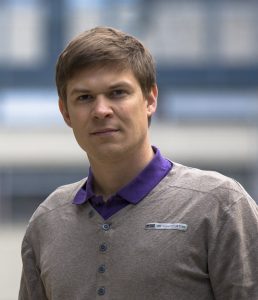
Title: Learning better models for inverse problem in imaging
Abstract: In this talk, I will present our ongoing activities in learning better models for inverse problems in imaging. We consider classical variational models used for inverse problems but generalized these models by introducing a large number of free model parameters. We learn the free model parameters by minimizing a loss function comparing the reconstructed images obtained from the variational models with ground truth solutions from a training data base. I will also show recent results on learning “deeper” regularizers that are allowed to change their parameters in each iteration of the algorithm. We show applications to different inverse problems in imaging where we put a particular focus on image reconstruction from undersampled MRI data.
CV: Thomas Pock received his MSc (1998-2004) and his PhD (2005-2008) in Computer Engineering (Telematik) from Graz University of Technology. After a Post-doc position at the University of Bonn, he moved back to Graz University of Technology where he has been an Assistant Professor at the Institute for Computer Graphics and Vision. In 2013 Thomas Pock received the START price of the Austrian Science Fund (FWF) and the German Pattern recognition award of the German association for pattern recognition (DAGM) and in 2014, Thomas Pock received an starting grant from the European Research Council (ERC). Since June 2014, Thomas Pock is a professor of computer science at Graz University of Technology (AIT Stiftungsprofessur “Mobile Computer Vision”) and a principal scientist at the Center for Vision, Automation & Control at the Austrian Institute of Technology (AIT). The focus of his research is the development of mathematical models for computer vision and image processing as well as the development of efficient convex and non-smooth optimization algorithms.
Davor Pavuna
Davor PAVUNA
Institute of Physics – LPCM
Ecole Polytechnique Federale de Lausanne (EPFL)
CH-1015 Lausanne EPFL, Switzerland
davor.pavuna@epfl.ch
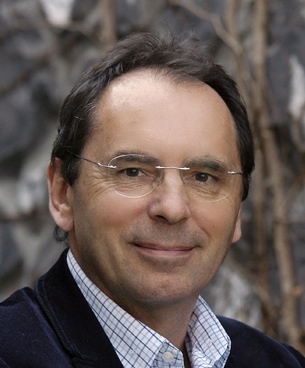
Title: On Quantum Computing, Kurzweil Singularity and Beyond
Abstract: Successes of the twentieth century physics and electronics made a huge impact on our society: from space technology to improved medical tools to colossal advancements in computing … And, while we still do not understand complex cooperative phenomena in the nanoscale limit, we nevertheless have ever more advanced software and over 6 billion smartphones! Moreover, in this early 3rd Millenium, we face huge challenges: Many timely, relevant themes are discussed here at the 2018. International Conference on Smart Systems and Technologies, yet I will deliberately discuss somewhat broader vision. Fast advancements in Quantum Computing (QC) and Artificial Intelligence (AI), beyond the Kurzweil singularity, are very competitive fields, and we will consider some latest examples and emerging trends. And I am happy to admit that we cannot as yet provide all coherent answers in QC or AI, so there are great opportunities for our new generations!
CV: Elementary school in Osijek, B.Sc. and M.Sc. in Zagreb (PMF, 1977); Ph.D. on electronic properties of amorphous metals (1982) under Sydney Dugdale, the President of the Science Research Council of Great Britain. After 3 years in CNRS (Grenoble), in 1986. joins the Swiss Federal Institute of Technology at Lausanne (EPFL). Successful research on (macroscopic) quantum phenomena within disorder in quantum matter. Publications include >200 cc papers, 35 topical reviews, 25 edited professional books, and a textbook on superconductivity (1992), used in >4000 courses worldwide! Co-organizer of 28 international conferences (see http://dubrovnik.epfl.ch ) and 7 summer schools. More than hundred colloquia in leading institutions worldwide and as many invited conference talks; hundreds of public lectures. Adviser to 36 government agencies and advanced high-tech companies worldwide. Tesla World Foundation President.
Dr. Edgar Weippl
Research Director of SBA Research and Privatdozent at the TU Wien
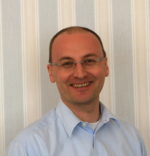
Title: Research Methods and Examples of Research in Distributed Systems Security
Abstract: Over the past few years an increasing number of descriptive works have helped explain complex phenomena in the area of distributed systems security. These include the efficiency of spam campaigns, the distribution of bots, or the likelihood of users to accept false identities as friends in social networks. Studies in this field are characterized by the necessity of empirical research based on observing, describing and inferring the behaviour of complex systems.
Future research in the area of distributed systems security, including my own work, will use empirical research to complement design science as research method. Specifically, this approach consists of 1) passively observing large systems; (2) active probing that stimulates revealing behaviour of the systems; (3) developing solutions for relevant security problems; (4) and evaluating these contributions. Its impact on a large number of users makes this area of research relevant and urgent. By following the described methodology, it will be possible to improve security in an existing ecosystem in which changes can be deployed only over a long period of time.
CV: Edgar R. Weippl is Research Director of SBA Research and associate professor (Privatdozent) at the Vienna University of Technology and teaches at several universities of applied sciences (Fachhochschulen). His research focuses on applied concepts of IT-security; he is on the editorial board of Elsevier’s Computers & Security journal (COSE), PC chair of ESORICS 2015, general chair of ACM CCS 2016 and PC Chair of SACMAT 2017.
After graduating with a Ph.D. from the Vienna University of Technology, Edgar worked for two years in a research startup. He spent one year teaching as an assistant professor at Beloit College, WI. From 2002 to 2004, while with the software vendor ISIS Papyrus, he worked as a consultant for an HMO in New York, NY and Albany, NY, and for the financial industry in Frankfurt, Germany. In 2004 he joined the Vienna University of Technology and together with A Min Tjoa and Markus Klemen founded the research center SBA Research.
at the CSC 2018 (Cyber Security Conference 2018), co-located to SST 2018
ORGANIZING COMMITTEE
Dragana Božić Lenard
J.J. Strossmayer University of Osijek, Croatia
Dario Došen
J.J. Strossmayer University of Osijek, Croatia
Ivanka Ferčec
J.J. Strossmayer University of Osijek, Croatia
Mirela Glavaš
J.J. Strossmayer University of Osijek, Croatia
Marija Habijan
J.J. Strossmayer University of Osijek, Croatia
Mirta Hanzer
J.J. Strossmayer University of Osijek, Croatia
Višnja Križanović
J.J. Strossmayer University of Osijek, Croatia
Hrvoje Leventić
J.J. Strossmayer University of Osijek, Croatia
Časlav Livada
J.J. Strossmayer University of Osijek, Croatia
Jasminka Majdandžić
J.J. Strossmayer University of Osijek, Croatia
Mario Miloloža
J.J. Strossmayer University of Osijek, Croatia
Filip Novoselnik
J.J. Strossmayer University of Osijek, Croatia
Krešimir Romić
J.J. Strossmayer University of Osijek, Croatia
Ana Šokčević
J.J. Strossmayer University of Osijek, Croatia
Krešimir Vdovjak
J.J. Strossmayer University of Osijek, Croatia
Davor Vrandečić
J.J. Strossmayer University of Osijek, Croatia
IMPORTANT DATES
CONFERENCE
Extended deadline (final)
17 June, 2018
Conference paper submission
20 July, 2018
Notification of conference paper acceptance
20 August, 2018
Final conference paper submission
10 September, 2018
Conference registration
SPECIAL SESSION AND WORKSHOP PROPOSALS
15 March, 2018
Workshop and special session proposal submission
31 March, 2018
Workshop and special session proposal acceptance
30 April, 2018
Workshop/special session paper submission
15 June, 2018
Notification of workshop/special session paper acceptance
15 July, 2018
Final paper submission
5 September, 2018
Workshop/special session registration
TOPICS
Topics for submission include but are not limited to:
- Affective Computing
- Agriculture Automation
- Applied Electromagnetics in Smart Systems
- Big Data and Smart Systems
- Biometrics and Smart Systems
- Cloud Computing
- Communication Systems
- Computational Intelligence
- Control Systems and Robotics
- Cyber-Physical Systems
- Dependable Computer Systems
- Embedded Computer Systems
- Green Communication
- Green Computing
- High Performance Computing
- Image and Video Processing
- Intelligent Power Systems and Environments
- Intelligent Transportation Systems
- Internet of Things
- Mobile and Wireless Networks
- Security and Privacy
- Smart Antennas
- Smart Health
- Smart Homes and Cities
- Smart Systems and Technologies in Education
- Smart Systems for Green Energy
- Smart Systems in Business
- Software Engineering for Smart Systems
SST 2018 – CONFERENCE PROGRAM
Conference venue: Hotel Osijek, Šamačka ul. 4, 31000, Osijek, Croatia
Wednesday, 10 October 2018
Greetings
(Room A – Lipa)
9:00 AM – 9:15 AM
General Chair: Professor Drago Žagar, Ph.D.
Audio, Image and Video Processing
(Room A – Lipa)
9:15 AM – 10:35 AM
Chair: Mario Vranješ
Hrvoje Leventić, Tomislav Keser, Krešimir Vdovjak
A Fast One-Pixel Wide Contour Detection Method for Shapes Contour Traversal in Binary Images
Tomislav Keser, Krešimir Nenadić, Gabrijela Kramar, Hrvoje Radman
Feature Extraction Based on Directional Contour Tracing Descriptor
Davor Kedačić, Marijan Herceg, Vukota Peković and Velibor Mihić
Application for Testing of Video and Subtitle Synchronization
Nenad Pekez, Nives Kaprocki, Jelena Kovačević
Firmware Update Procedure for Audio Systems based on CS4953xx DSP family
Smart Power Systems and Electrical Drives
(Room B – Kesten)
9:15 AM – 10:35 AM
Chairs: Marinko Stojkov, Denis Pelin
Vedrana Jerković Štil, Krešimir Miklošević, Željko Špoljarić, Goran Kurtović
Induction Motor Sensorless and Closed Loop Torque Control in Frequency Converters
Andrej Brandis, Denis Pelin, Matej Žnidarec, Viktor Varjú
Performance Analysis of Switching Techniques for Induction Motor Drives and Experimental Verification with Smart Didactic System
Marjan Ugljar, Tin Benšić, Marinko Barukčić
Space Vector Modulation Implementation on RTOS/FPGA Embedded System
Antun Stoić, Marinko Stojkov, Ivan Samardžić, Miroslav Duspara
Energy Efficiency in Machine Tool
Coffee Break
10:35 AM – 11:00 AM
Modelling and Smart Measurements
(Room B – Kesten)
11:00 AM – 1:00 PM
Chair: Slavko Rupčić
Jure Konjevod, Petar Mostarac, Martin Dadić, Roman Malarić
Analysis and Development of Digital Sampling Wattmeter Components for Precise Electric Power Measurement
Lajos Józsa, Ivica Petrović, Hrvoje Glavaš and Marko Vukobratović
Installation Lines Testing by Impulse Reflectometry Based Method
Ivan Raguž, Dražan Kozak, Krešimir Crnogorac, Mladen Hercog
Designing and Calibration Of The System For Remote Strain Control
Branimir Ivšić, Martin Dadić and Roman Malarić
Cut-off Frequency Optimization of Ultraspherical Microstrip Filter
Dina Jukić, Željko Hederić, Marinko Barukčić, Ivan Mijić
Effects of Water Capillary Action on Capacitance of Parallel Plate Capacitor
Vanja Mandrić Radivojević, Slavko Rupčić, Nataša Nešić, Goran Benšić
Radiation Pattern of the Spherical Antenna Array Based on Archimedean Spiral
Lunch
1:00 PM – 2:00 PM
Keynote Lecture
(Room A – Lipa)
3:00 PM – 4:00 PM
Edgar Weippl, Research Methods and Examples of Research in Distributed Systems Security
Coffee Break
4:00 PM – 4:30 PM
Computational Intelligence
(Room A – Lipa)
4:30 PM – 5:50 PM
Chair: Damir Filko
Andreas Dyrøy Jansson, Bernt Arild Bremdal
Genetic Algorithm for Adaptable Design using Crowdsourced Learning as Fitness Measure
Dražen Bajer, Bruno Zorić, Goran Martinović
Empirical Analysis of Artificial Bee Colony Algorithm Parameters
Bruno Zoric, Dražen Bajer and Goran Martinović
Utilising Filter Inferred Information in Nature-inspired Hybrid Feature Selection
Denis Vajak, Ratko Grbić, Mario Vranješ, Dejan Stefanović
Environment for Automated Functional Testing of Mobile Applications
Robotics and Industrial Systems
(Room B – Kesten)
4:30 PM – 5:30 PM
Chair: Robert Cupec
Soujanya Mantravadi, Charles Møller, Flemming Max Møller Christensen
Perspectives on Real-Time Information Sharing through Smart Factories: Visibility via Enterprise Integration
Zoltán Jakó, Ádám Knapp
Business Scenarios and Data Flow in NeMo Hyper-Network
Alejandro R. Barroso, Roque Saltaren, Gerardo Portilla, Juan S. Cely, Marco Carpio
Smooth Path Planner for Dynamic Simulators Based on Cable-Driven Parallel Robots
6.00 PM -7.00 PM City Tour (Starts from the hotel Osijek)
7:30 PM – 10:00 PM Welcome Reception (Restaurant Muzej okusa)
Thursday, 11 October 2018
E-Health
(Room A – Lipa)
8:30 AM – 9:30 AM
Chair: Marijan Herceg
Luka Bartolić, Bruno Zorić, Goran Martinović
E-Gluko: A Ubiquitous System for Health Status Monitoring and Tracking in Diabetes Patients
Luka Filipović, Marijan Herceg, Tomislav Matić
Influence of Human Body Motion on DCSK Performance over HBC Channel
Filip Novoselnik, Ratko Grbić, Irena Galić, Filip Dorić
Automatic White Blood Cell Detection and Identification Using Convolutional Neural Network
ICT in Power Systems
(Room B – Kesten)
8:30 AM – 9:30 AM
Chairs: Srete Nikolovski, Dragan Mlakić
Srete Nikolovski, Dragan Mlakić and Hamid Reza Baghaee
Arc Flash Incident Energy Simulation in PV Power Plant Connected to Distribution Network
Domagoj Talapko, Sejid Tešnjak, Hrvoje Glavaš
Comparison of Electrical Architectures for Support of the Software Defined Data Centres
Hrvoje Glavaš, Frano Zovko-Ribić, Dražen Dorić, Domagoj Talapko
Development of Energy Management Standards
Keynote Lecture
(Room A – Lipa)
9:40 AM – 10:40 AM
Thomas Pock, Learning Better Models for Inverse Problem in Imaging
Coffee Break
10:40 AM – 11:00 AM
Opening Ceremony
(Room A – Lipa)
11:00 AM – 11:30 AM
Chairs: TBA
Keynote Lecture
(Room A – Lipa)
11:30 AM – 12:30 PM
Davor Pavuna, On Quantum Computing, Kurzweil Singularity and Beyond
Lunch (Restaurant)
12:30 PM – 1:30 PM
PhD Forum ICT
(Room A – Lipa)
1:30 PM – 3:00 PM
Smart Energy
(Room B – Kesten)
1:30 PM – 2:50 PM
Chairs: Viktor Lovrenčić, Damir Šljivac
Ružica Kljajić, Martin Ivić, Goran Knežević
The Optimal Bid of the Thermal Power Plants on a Day-Ahead Market
Mladen Antolić, Boris Fažo, Srete Nikolovski, Zoran Baus
Active demand energy services decomposition
Alessandro Niccolai, Alberto Dolara, Francesco Grimaccia
Analysis of Photovoltaic Five-Parameter Model
Viktor Lovrenčić, Srete Nikolovski, Thomas Jordan, Marius Engebrethsen, Ana Lovrenčič
Computer Aided Arc Flash Risk Assessment According to IEEE and DGUV Standards
Excursion, Gala Dinner and Awards Ceremony
3:30 PM – 10:00 PM
Friday, 12 October 2018
Internet of Things and Cyber Security
(Room A – Lipa)
9:00 AM – 10:00 AM
Chairs: Darko Andročec, Krešimir Grgić
Dijana Oreški, Darko Andročec
Hybrid Data Mining Approaches for Intrusion Detection in the Internet of Things
Marko Pavelić, Zvonimir Lončarić, Marin Vuković, Mario Kušek
Internet of Things Cyber Security: Smart Door Lock System
Edi Muskardin, Marija Brkić Bakarić and Maja Matetić
Implementation of Hashing Algorithms in Stream Mining
Microgrids
(Room B – Kesten)
9:00 AM – 10:00 AM
Chair: Danijel Topić
Dragan Mlakić, Hamid Reza Baghaee, Srete Nikolovski
Islanding Detection in Microgrids including VSC-based Renewable/Distributed Energy Resources: An AI-based Technique
Matej Žnidarec, Danijel Topić, Damir Šljivac, Zvonimir Klaić, Andrej Brandis
Influence of Load Peak Shaving on Battery System Capacity in an Islanded Building Microgrid
Heidi Marguš, Matej Žnidarec, Damir Šljivac
Achieving Nearly Zero Energy Standard and Island Operation of FERIT Osijek Microgrid
Coffee Break
10:00 AM – 10:30 AM
Round Table
(Room A – Lipa)
10:30 AM – 12:00 AM
Moderator: Damir Šljivac
Smart Energy in Rural Areas
Technical Lecture
(Room A – Lipa)
12:00 AM – 1:00 PM
Marko Bunić, M.Sc.E.E., Siemens d.d., Zagreb
The Way to Digital Transformation, How Future Factories Work
Closing Ceremony
(Room A – Lipa)
1:00 PM – 1:15 PM
Coffee and Light Lunch
1:15 PM – 2:15 PM
PhD Forum – Basic information
PhD Forum Organization
The PhD Forum provides an opportunity for doctoral students to present their work in the areas of ICT related to the SST 2018 conference topics to a wider community of researchers from academia and industry. The forum aims to encourage interaction and networking among doctoral students, as well as with the audience.
Steering Committee
Dinko Begušić,
University of Split
Tihana Galinac-Grbac,
University of Rijeka
Darko Huljenić,
Ericsson Nikola Tesla
Maja Matijašević,
University of Zagreb
Snježana Rimac-Drlje,
Josip Juraj Strossmayer University of Osijek
Drago Žagar,
Josip Juraj Strossmayer University of Osijek
Program & Organizing Committee
Ognjen Dobrijević,
University of Zagreb
Andrej Grgurić,
Ericsson Nikola Tesla
Višnja Križanović,
Josip Juraj Strossmayer University of Osijek
Goran Mauša,
University of Rijeka
Maja Škiljo,
University of Split
Josef Spillner
Zurich University of Applied Sciences
PhD Forum Programme
Thursday, October 11, 2018
Starting at: 13.30
The PhD Forum consists of a poster session, preceded by a fast-paced introduction by each student that offers a preview of the posters. Each student is given a strictly-timed 2-minutes’ slot to present a “pitch talk” about her/his research. The purpose of the pitch talk is to provide a brief outline of one’s doctoral research work, with the goal to raise awareness and generate further discussion over the poster session and coffee break that follow.
Pitch Talk Presentations (announced)
Poster Presentations over coffee – An open session for discussion with all students standing next to their posters.
For any inquiries regarding the PhD Forum please contact the Program & Organizing Committee Chair.
SST 2018 conference will host a PhD Forum on Thursday, October 11, 2018. The PhD Forum will take place at the SST 2018 conference venue – Hotel Osijek in Osijek, Croatia. The PhD Forum provides an opportunity for doctoral students to present their work in the areas of ICT related to the SST 2018 conference topics to a wider community of researchers from academia and industry. The forum aims to encourage interaction and networking among doctoral students, as well as with the audience.
The PhD Forum will be organized as a poster session, preceded by a fast-paced introduction by each student that offers a preview of the posters. Each student will be given a strictly-timed 2-minutes’ slot to present a “pitch talk” about her/his research. The purpose of the pitch talk is to provide a brief outline of one’s doctoral research work, with the goal to raise awareness and generate further discussion over the poster session and coffee break that follow.
Doctoral students are invited to submit a two-page extended abstract for review and possible inclusion in the PhD Forum program. The abstracts should be formatted according to the PhD Forum paper submission instructions and templates:
The abstracts should be submitted before the submission deadline via EasyChair.
The extended abstract should contain the title, the names and affiliations of the student and her/his advisor(s), the summary of research goals/results (of maximum 150 words), the research topic presentation, graphical illustrations to aid the presentation, and the list of references.
Presentations and posters should be formatted according to the PhD Forum paper submission instructions and templates.
IMPORTANT DATES
Sept. 1, 2018
Sept. 6, 2018
Extended Abstracts, Due
Sept. 15, 2018
Sept. 20, 2018
Notification of Acceptance
Sept. 25, 2018
Oct. 1, 2018
Final Camera-Ready Abstracts, Due
Oct. 11, 2018
PhD Forum Session
For more information, please refer to Call For Participation.
VENUE
The conference will take place at the Hotel Osijek, located in the centre of Osijek on the Drava river (http://www.hotelosijek.hr/en/).
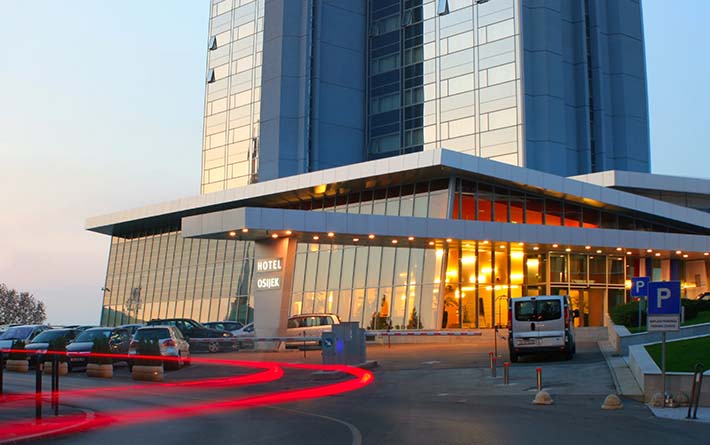

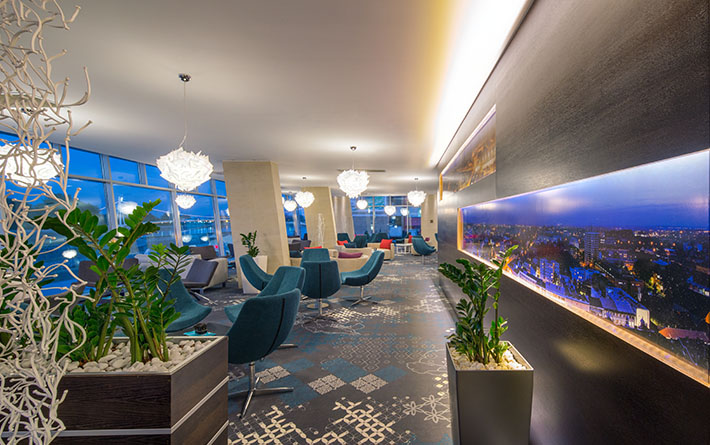
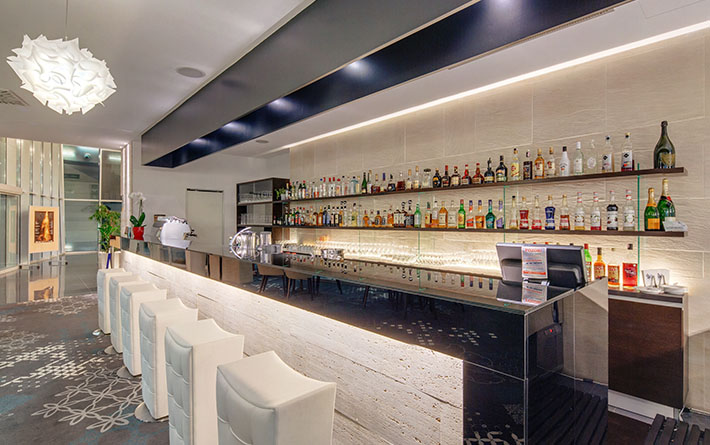
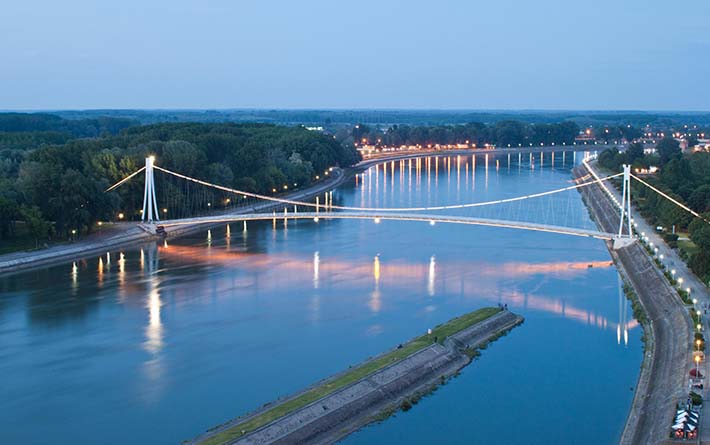
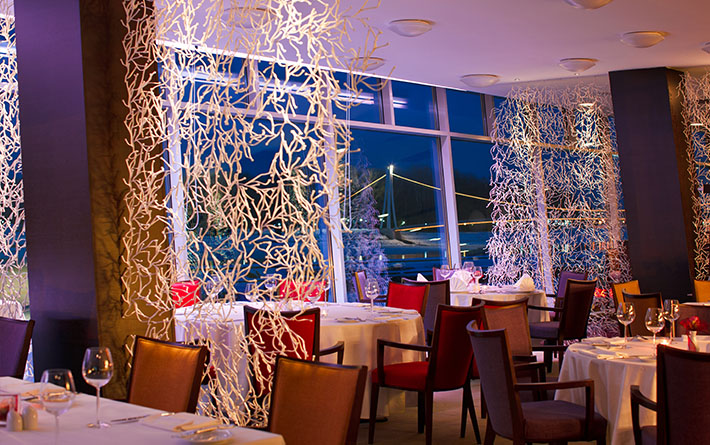
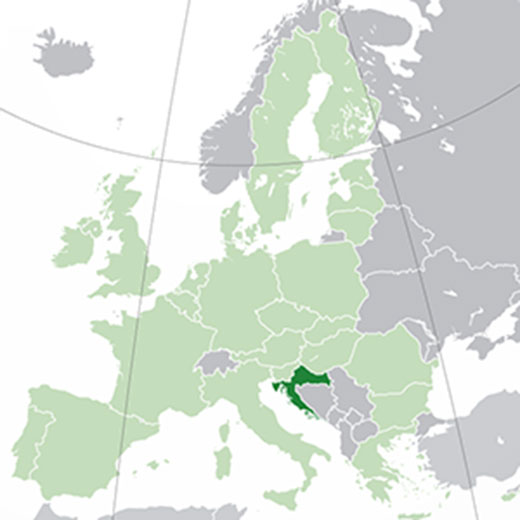
The Republic of Croatia is geographically located between Central and Eastern Europe. It covers the geographical area that extends from the spacious Pannonian Plain across a narrow area of the Dinaric Alps to the Adriatic coast – one of the most indented coastlines in the world. The interior of the country has a moderate continental climate, whereas a pleasant Mediterranean climate prevails along the Adriatic coast.

Slavonia and Baranja is a historical region in eastern Croatia. It is surrounded by three rivers; the Sava River (the border with Bosnia and Herzegovina), the Drava River (the border with Hungary) and the Danube (the border with Serbia), forming an area of exceptional beauty with forests, meadows and hills. In Slavonia, there are numerous castles and villas that once belonged to rich families, but now they add a special charm to this part of Croatia. Baranja stretches between the Drava River in the north and the Danube in the east. At the point where the Danube and the Drava River meet, nature has created a remarkable phenomenon – Kopački Rit Nature Park, which is rich in flora and fauna. In 1967, Kopački Rit and its immediate area were declared a nature park and a zoological reserve, respectively.

The largest city in Slavonia, Osijek, which is located on the Drava River, is an interesting tourist destination with numerous parks, cultural monuments and entertainment possibilities. Osijek is the fourth largest city in the Republic of Croatia with about 110,000 inhabitants. It is located in a valley on the right bank of the Drava River. It consists of the Fortress – a baroque city-fortress built in the 18th century, the Upper, the Lower and the New Town, Retfala and the Industrial District. Osijek is the most verdant city in the Republic of Croatia. The 18th century baroque city-fortress of Osijek was built by transforming the then historic city located at the strategic crossing over the Drava River. The first new city-fortress was built within a large strategic system of fortified baroque towns on the border with the Ottoman Empire, which was founded by Prince Eugene of Savoy who began to build it in 1712. The fortress had four gates: The New Gate (south), the Water Gate (north), the Imperial Gate (east) and Valpovo Gate (west). Out of these four gates to the fortress, only one is still present today – the Water Gate, where there is a memorial plaque dedicated to the builder of Osijek fortress, general Stephan von Beckers. It is believed that his body was walled up in the outer wall or rampart.
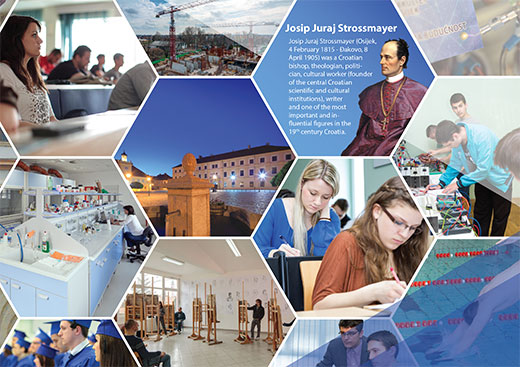
Josip Juraj Strossmayer University of Osijek was established in 1975. It consists of 17 constituent units, i.e., 11 faculties, 5 University departments, 1 Academy of Arts and 3 university infrastructure institutions, i.e., the City and University Library in Osijek, the Student Center in Osijek and the Student Center in Slavonski Brod, as well as the Technology Development Center Osijek Ltd. Today, Josip Juraj Strossmayer University of Osijek has 1,458 employees and about 20,000 students with almost 2,000 students studying at the Faculty of Electrical Engineering. Each year, the number of incoming students doing their practical training and scientists conducting research has been increasing in both the University and the Faculty of Electrical Engineering.
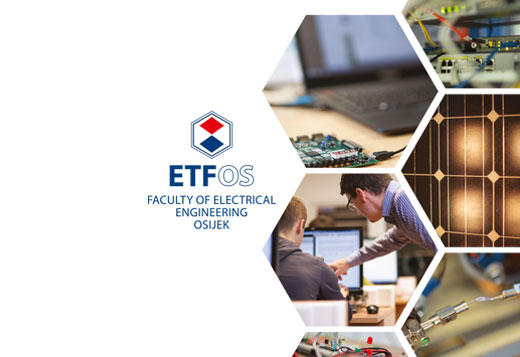
The Faculty of Electrical Engineering, Computer Science and Information Technology in Osijek is a higher education, scientific and research institution that conducts scientific, research, development and educational projects and performs undergraduate, graduate, postgraduate and professional study programs in technical sciences. Higher education curriculum in electrical engineering was first established in Osijek in 1978 as the third study of the kind in the Republic of Croatia. The establishment of the Study of Electromechanical Engineering resulted from an initiative of the University of Osijek and took place in 1977 and 1978.
It was supported by the economy of the city of Osijek and surrounding municipalities in the Slavonia and Baranja region. In 1993, the Faculty of Electrical Engineering Osijek (ETFOS) was founded as a public institution of higher education. Today, it is organized in six departments with a total of fifteen chairs and two accredited laboratories. Through its university and professional study programs, the Faculty of Electrical Engineering, Computer Science and Information Technology in Osijek has been educating and training its staff to be able to keep up with technology advances in the areas of electrical and computer engineering as well as to apply their knowledge to engineering problem solving and, through direct cooperation with industry, to transfer knowledge of new technologies based on new scientific findings. Study programs are in line with European and global trends, but also adapted to the needs of the economy in the environment.
The Faculty of Electrical Engineering, Computer Science and Information Technology in Osijek is also a regional scientific and research center of excellence in the areas of electrical and computer engineering.
SPONSORS, DONORS AND SUPPORT
If you are interested in supporting SST2018 as described on the following link:
please contact kruno.milicevic@ferit.hr.
INDUSTRIAL PARTNER
CO-ORGANIZER
Grad Osijek



